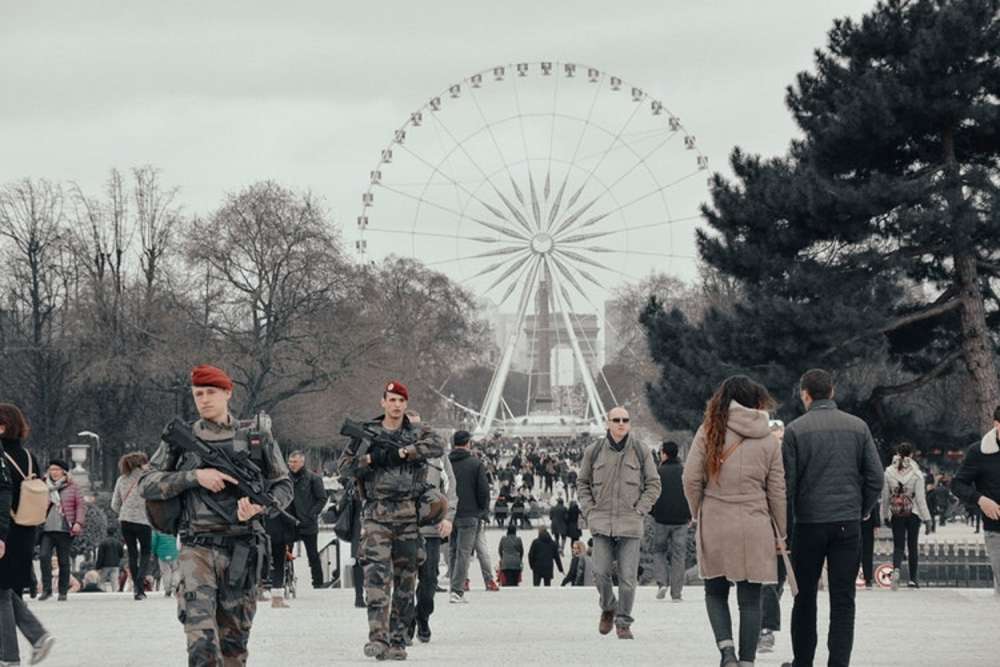“We Need to Stay Calm in the Face of Terror”

Security authorities alone cannot prevent new forms of terrorism. We need to focus more on prevention and building resilient societies.
Tagesspiegel Online: Ms. Domisse, vehicles were used as weapons in many of this year’s terrorist attacks, and often attackers had been radicalized. How would you characterize the new quality of terrorist attacks?
Aurélie Domisse: The terrorist attacks in Nice, Berlin, Stockholm, London, and Barcelona have two trends in common. First, large and well-coordinated attacks such as the one in Paris in November 2015 have been replaced by smaller-scale attacks carried out by individuals who supposedly act on their own. Since 2016, the Islamic State (ISIS) has been calling for this kind of attacks in the West and giving precise instructions on the internet. These terrorists are often called “lone wolves”. The metaphor serves to designate persons who are not directly part of a terrorist organization but plan and carry out terrorist acts mostly independently. However, the term is misleading because it neglects the fact that most lone wolves are in fact connected to larger terrorist cells or networks, for instance through encrypted online communication services.
Second, terrorist attacks have become much less elaborate and costly to plan and conduct. This has become evident in the selection of both targets and means. Attackers increasingly hit so-called soft targets such as pedestrian zones, promenades or shopping malls because they are less well secured than airports or train stations. In addition, perpetrators rely less on heavy weapons such as self-made explosive devices but more on means that are cheap and easy to obtain such as trucks.
This approach has proven unfortunately effective. Although the number of victims is usually below that of bombings, the random selection of targets and the use of ubiquitous items as weapons have fueled a feeling of unpredictability and fear in daily urban life. The political effects – islamophobia and right-wing populism – can be seen all across Western Europe.
TO: Does this new form of terrorism indicate that international jihad is growing weaker?
Domisse: No, quite the opposite. While it is true that the defeat of ISIS in Raqqa in mid-October basically put an end to the terrorist group’s bloody regime in Iraq and Syria, this does not mean that ISIS is gone for good. The group has been able to adjust to changing circumstances in the past. If it does not want to become irrelevant, the pressure to attract media attention is actually mounting. Terror attacks in the West service exactly this purpose. Jihadist terrorism is here to stay, which is why we need to stay calm in the face of terror and build more resilient societies. How the Berlin population reacted to the terrorist attack in December of last year showed that dismay and compassion do not necessarily result in fear and panic. Our political leaders also need to recognize that there is no such thing as absolute security.
TO: How will international jihadist groups react to the weakening of ISIS?
Domisse: This will depend on whether the geographical defeat of ISIS in Iraq and Syria will weaken its underlying appeal. It may well be that other groups will fill the emerging void if the idea remains attractive to them. In fact, ISIS rose to power as a successor organization to Al-Qaeda in Iraq.
TO: How could such attacks be prevented? Do we have to further increase the powers of security authorities?
Domisse: Terrorist attacks such as the ones just described are extremely difficult to prevent. Attackers are often radicalized autonomously and on the Internet, and ordinary items are used as weapons. Barriers at bus stops and Christmas markets will not prevent this kind of attacks. More CCTV or using data from toll stations to track movements on highways – both recurring proposals in the wake of terrorist attacks – not only raise data protection concerns but are also unlikely to solve the problem.
Instead, the group of so-called “Gefährder” (that is, persons susceptible to perpetrate terrorist acts) needs to be closely watched while also taken warning signals from the personal environment of potential jihadists seriously. Paths to radicalization differ widely and each terrorist’s profile is unique. Parents and family members, friends, neighbors, colleagues, or teachers will have to detect radicalized behavior as early as possible and report it to the authorities. Local networks and communities play an important role in taking preventive action both online and in the real world. We must do more to fully understand how and why individuals become radicalized. For this to happen, we need to rethink our approach to counterterrorism. Security authorities and intelligence services alone will not be able to prevent attacks.
TO: Terrorists increasingly come from Uzbekistan and other states in Central Asia. Is this a new regional hotbed for jihadists?
Domisse: It is premature to draw any conclusions. So far, it seems that the suspect in New York’s recent truck attack was radicalized after he arrived in the United States and not in Uzbekistan. Nevertheless, it is striking that several perpetrators of recent attacks have come from Central Asia. This is not necessarily a new phenomenon: the two brothers responsible for the bombings at the Boston marathon in 2013 grew up in Kyrgyzstan. The fact that we are now speaking about Central Asia as a terrorist hotbed only shows that the region has been a blind spot in the public debate. Political pundits and the media alike have been focusing primarily on the Middle East and North Africa. This may be about to change.
…
This interview was originally published in German in Tagesspiegel Online on November 3, 2017.







